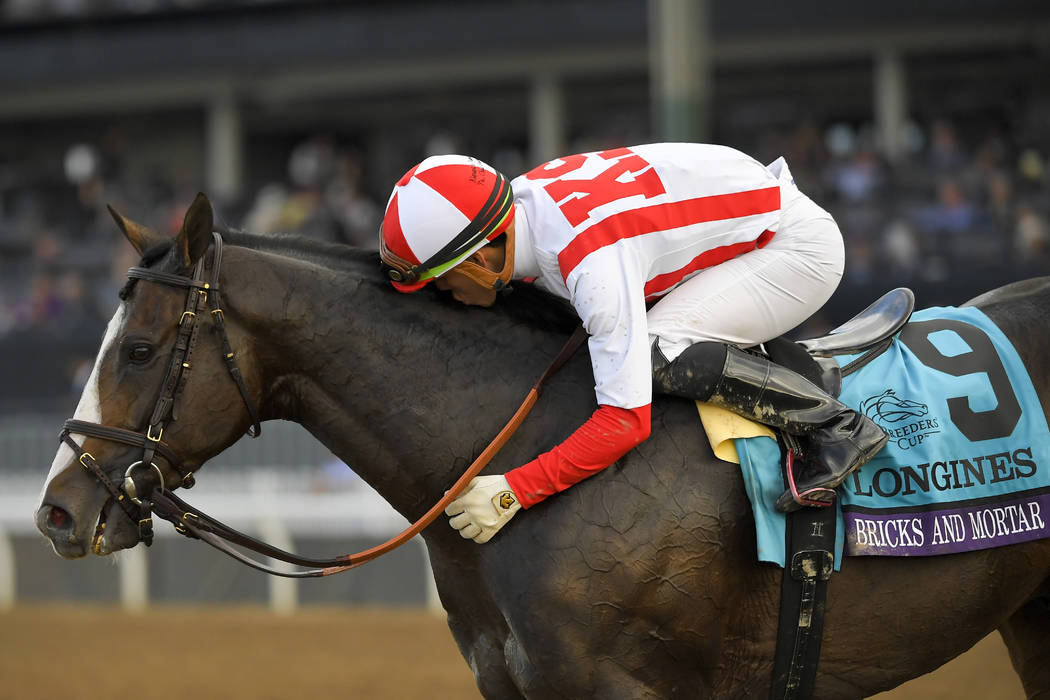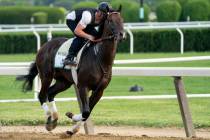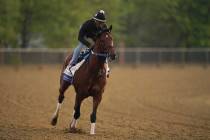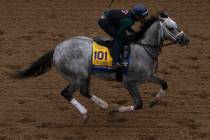Who were horse racing’s brightest stars in 2019?
I spent the first day of 2020 engaged in an agonizing annual exercise known as Eclipse Award voting.
Don’t get me wrong. I consider it a privilege to cast a ballot to honor the best equines and humans in horse racing as a member of the National Turf Writers and Broadcasters Association and would never voluntarily relinquish it. But it comes with a responsibility to do the best you can to identify and honor excellence in the sport.
And therein lies the rub.
The industry groups behind the awards handed out each year since 1971 really don’t give voters much guidance about what we’re supposed to consider when comparing horses and humans in various categories.
All they tell us is that we should vote for “horses and individuals whose achievements have earned them the title of champion in their respective categories.” Subsequent clauses make clear that only races in the U.S. or Canada are to be considered and strongly imply that we are to look at the statistics that are included in our voter packets.
But voters are left entirely to themselves to decide how to regard raw win numbers vs victories against the highest level of competition or compare Grade 1 victories by a turf sprinter against those earned by a tough older runner regularly competing at the classic distances of 1 ¼ or 1 ½ miles.
The other issue that makes voting so difficult is that no categories have yet been carved out for specific classes of runners in the turf divisions. This leads to such impossible situations as trying to compare crack turf sprinter World of Trouble with top route horses like Bricks and Mortar.
The National Thoroughbred Racing Association, an industry marketing organization, and other supporters of the Eclipse Award system have tried to address the issue a couple times. In 2007, for example, an award for champion female sprinter was added to the lineup. And the champion female turf horse category was added in 1978.
But it’s time to bite the bullet and break up the turf division into sprint and route categories as they’ve done for the dirt races, and add 3-year-old divisions while they’re at it. No one wants to cheapen the awards, but this division would ensure that excellence of all sorts is recognized.
You can see my entire Eclipse Award ballot below, but here’s a brief rundown of how I viewed a couple categories:
— Horse of the Year. Tradition be damned. I had no problem picking Bricks and Mortars for his unbeaten season in which he captured five Grade 1 stakes and one Grade 2 over six racetracks at distances ranging from 1 1/8th to 1 ½ miles. I considered Mitole, winner of six of seven starts in 2019 and likely champion of the male sprint division, a solid runner-up, and placed Maximum Security third.
— Toughest category for me was champion female turf runner, as both Sistercharlie and Uni were deserving. I went with the latter because of her victory over my other top three selection, Got Stormy, in the Breeders’ Cup Mile. I couldn’t even fit Vasilika, another deserving mare, onto the board.
New #RJhorseracing handicapping tournament
The #RJhorseracing handicappers are taking a week off at my request so that I can try to recruit more players for the next quarterly handicapping contest, which will start next week.
It’s easy to get involved in what I’m calling the #RJhorseracing Winter Slugfest, and there is an actually fabulous prize at stake this go-round that I’ll reveal next week.
To get in on the action, simply drop me an email at the address below and let me know if you’d like to get involved. Alternatively you can follow me on Twitter and do the same.
Mike Brunker’s horse racing column appears Fridays. He can be reached at mbrunker@reviewjournal.com or 702-383-4656. Follow @mike_brunker on Twitter.
Mike Brunker's Eclipse Award ballot
Here's how I voted on this year's Eclipse Award, in order of preference. I'd love you hear your thoughts.
Horse of the Year
Bricks and Mortar; Mitole; Maximum Security
2-year-old Male
Structor; Storm the Court; Four Wheel Drive
2-year-old Filly
British Idiom; Bast; Perfect Alibi
3-year-old Male
Maximum Security; Omaha Beach; Spun to Run
3-year-old Filly
Covfefe; Cambier Parc; Concrete Rose
Older Dirt Male
Vino Rosso; Mitole; Imperial Hint
Older Dirt Female
Midnight Bisou; Blue Prize; Come Dancing
Male Sprinter
Mitole; Omaha Beach; World of Trouble
Female Sprinter
Covfefe; Come Dancing; Bellafina
Male Turf Horse
Bricks and Mortar; Mo Forza; World of Trouble
Female Turf Horse
Uni; Sistercharlie; Got Stormy
Steeplechase Horse
Winston C; Surprising Soul; Scorpiancer
Owner
Klaravich Stables Inc. and William H. Lawrence; Gary Barber; Peter Brant
Breeder
George Strawbridge Jr.; Calumet Farm; Kenneth L. and Sarah K. Ramsey
Jockey
Irad Ortiz Jr.; J. J. Castellano; Mike Smith
Apprentice Jockey
Kazushi Kimura; Angel I. Diaz; Julio Correa
Trainer
Chad Brown; Steven M. Asmussen; Karl Broberg























